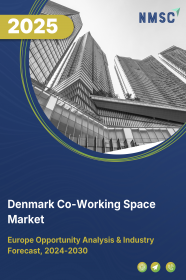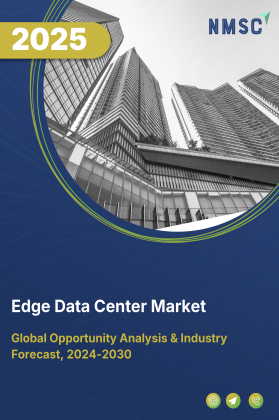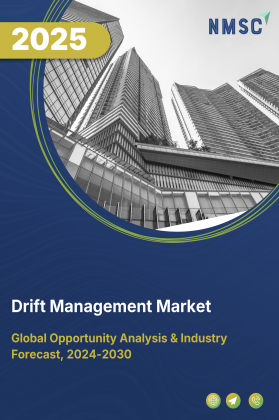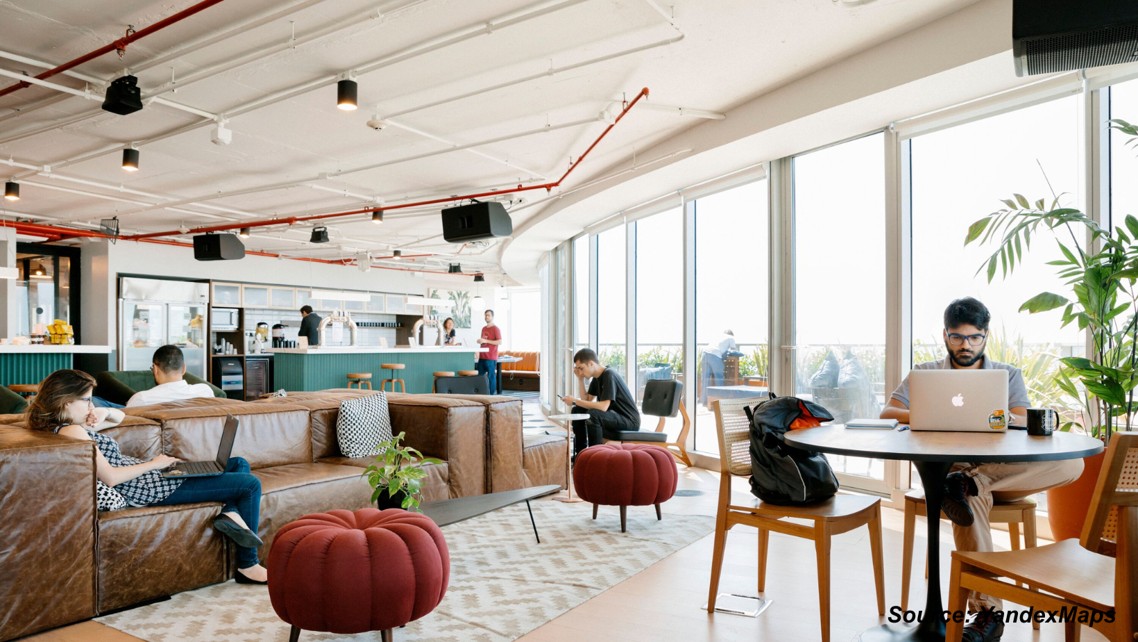
Denmark Co-Working Space Market by Space Type, (Shared Open Spaces, Enclosed Private Suites, Virtual Office Solutions, Event Or Meeting Facilities), by Membership Type, (Hot Desks, Dedicated Desks, Private Office Leases, Hybrid Flex Passes), by Business Type, (Standard Coworking, Premium Managed Offices, Niche Or Specialized Spaces), by Business Model, (Direct Ownership or Operation, Franchise Or Partnership, Real Estate Collabs) –Opportunity Analysis and Industry Forecast, 2024–2030
Industry: ICT & Media | Publish Date: 07-Oct-2025 | No of Pages: 84 | No. of Tables: 120 | No. of Figures: 65 | Format: PDF | Report Code : IC2026
Industry Overview
The Denmark Co-Working Space Market size was valued at USD 137.2 million in 2023, and is predicted to reach USD 578.7 million by 2030, at a CAGR of 22.6% from 2024 to 2030. Co-working space represents a dynamic and adaptable solution to the evolving needs of businesses. These shared work environments offer flexibility in lease terms and space requirements, appealing particularly to startups and small enterprises seeking to avoid the upfront costs associated with traditional offices. The communal atmosphere encourages networking and collaboration among professionals from diverse fields, fostering innovation and creativity.
Equipped with modern amenities and strategically located, managed workspaces provide cost-effective, scalable, and accessible alternatives for companies seeking a central presence without the constraints of long-term leases. The industry has experienced significant growth as businesses recognize the benefits of this model, embracing the collaborative opportunities and resource-sharing inherent in co-working spaces.
Enterprise Demand for Agile, Tech Enabled Office Solutions Fuels Market Growth
Large enterprises in Denmark are increasingly turning to flexible, managed office solutions to boost agility and reduce capital expenditures. Recent trends show that enterprise clients seek coworking environments that can be quickly scaled up or down, equipped with hybrid-ready infrastructure and private, branded office spaces. This shift is driven by changing workplace strategies, with companies prioritizing flexibility over long-term leases, making coworking a mainstream choice for corporate tenants in Copenhagen, Aarhus, and other major markets. Operators are responding by offering enterprise-grade features such as secure digital access, customizable layouts, and integrated IT services, allowing companies to maintain productivity and brand consistency without the overhead of traditional office setups. This growing institutional demand is reshaping the coworking landscape from a startup-centric model to a full-spectrum workspace solution.
Hybrid Working Norms Elevate Coworking as Workplace Essential
Denmark’s workforce is firmly adopting hybrid work models, with a growing preference for combining remote flexibility with in-person collaboration. Employers are increasingly redesigning workplace strategies to accommodate these expectations, leading to a surge in demand for third-party coworking spaces that offer convenience, infrastructure, and community. Employees report higher satisfaction levels when given access to flexible workspaces that allow for focus-driven tasks alongside collaborative interaction. At the same time, companies benefit from decentralized work models that reduce office costs while improving access to talent across regions. Coworking spaces serve as neutral, professionally managed environments that support daily operations without the rigidity of conventional leases. Their accessibility, amenities, and scalable design make them ideal for hybrid teams seeking productivity and connectivity, positioning them as an essential component of the modern Danish workplace.
Rising Operational Costs and Regulatory Complexity Undermine Sustainable Expansion
A key restraint for Denmark’s coworking market is the rising cost of operations coupled with complex regulatory requirements. As coworking spaces scale across cities, operators face increasing expenses related to real estate, energy efficiency mandates, digital infrastructure, and staffing. Denmark’s strong emphasis on workplace sustainability and data protection—while important—requires significant upfront investment, especially for smaller operators.
Additionally, navigating local building codes, GDPR compliance, and municipal zoning laws adds administrative hurdles that slow down expansion. These challenges are particularly pronounced outside major metros, where inconsistent regulations and limited support services increase time-to-market and operational risk. Together, these factors can limit profitability and make it difficult for coworking providers to offer affordable, scalable models—especially in emerging or lower-density regions
Expansion Into Regional and University Towns Presents High-growth Opportunity
The emergence of regional cities and university towns across Denmark presents a promising opportunity for coworking operators to tap into underserved markets. With improvements in digital infrastructure, public transport links, and local business ecosystems, places such as Aalborg, Esbjerg, Kolding, and Roskilde are evolving from commuter hubs into vibrant entrepreneurial centres. These locales offer cost advantages, proximity to talent streams from technical and research institutions, and growing demand for flexible work environments among local startups, scale-ups, remote corporate teams, and academic spin-offs.
Public sector initiatives aimed at boosting digital inclusion and regional innovation—such as municipal transformation programs and national grants for rural business development—are further catalyzing this shift. They encourage universities and incubators to set up satellite innovation hubs, often co-located with coworking operators, to accelerate technology transfer and entrepreneurship outside Copenhagen. Operators that adapt their offerings for regional dynamics—for instance, by promoting community events, flexible day passes, and affiliation with academic institutions—can access first-mover advantages and establish strong footholds in these growth markets.
Supporting coworking in these emerging hubs not only addresses urban concentration but also aligns with broader national goals of decentralization and inclusive economic development. As remote work continues to gain traction and digital-first businesses proliferate, regional coworking spaces are well-positioned to become pivotal enablers of innovation, talent retention, and business formation across Denmark.
Competitive Landscape
The Denmark co-working space industry comprises various companies, including Regus (IWG Group), Symbion A/S, Republikken, Bloxhub, Nomad Workspace APS, Founders House, Talent Garden Copenhagen (Rainmaking), Zoku Copenhagen ApS, Office Club Denmark, CPH: OFFICE ApS, Amalie6, V74 ApS, WORQ Soborg, Ordnung, Mesh Community, and others.
Denmark Co-Working Space Market Key Segments
By Space Type
-
Shared Open Spaces
-
Enclosed Private Suites
-
Virtual Office Solutions
-
Event Or Meeting Facilities
By Membership Type
-
Hot Desks
-
Dedicated Desks
-
Private Office Leases
-
Hybrid Flex Passes
By Business Type
-
Standard Coworking
-
Premium Managed Offices
-
Niche Or Specialized Spaces
By Business Model
-
Direct Ownership or Operation
-
Franchise Or Partnership
-
Real Estate Collabs
By End User
-
Freelancers / Remote Workers
-
Startups (Less Than 10 Employees)
-
SMEs (10–250 Employees)
-
Large Enterprises (More Than 250)
By Industry Vertical
-
Technology & IT Services
-
Financial & Professional
-
Healthcare & Life Sciences
-
Manufacturing & Logistics
-
Public Sector & Education
-
Others
Key Players
-
Regus (IWG Group)
-
Symbion A/S
-
Republikken
-
Bloxhub
-
Nomad Workspace APS
-
Founders House
-
Talent Garden Copenhagen (Rainmaking)
-
Zoku Copenhagen ApS
-
Office Club Denmark
-
CPH: OFFICE ApS
-
Amalie6
-
V74 ApS
-
WORQ Soborg
-
Ordnung
-
Mesh Community
Report Scope and Segmentation
|
Parameters |
Details |
|
Market Size in 2023 |
USD 137.2 Million |
|
Revenue Forecast in 2030 |
USD 578.7 Million |
|
Growth Rate |
CAGR of 22.6% from 2024 to 2030 |
|
Analysis Period |
2023–2030 |
|
Base Year Considered |
2023 |
|
Forecast Period |
2024–2030 |
|
Market Size Estimation |
Million (USD) |
|
Growth Factors |
|
|
Companies Profiled |
15 |
|
Market Share |
Available for 10 companies |
|
Customization Scope |
Free customization (equivalent up to 80 working hours of analysts) after purchase. Addition or alteration to country, regional, and segment scope. |
|
Pricing and Purchase Options |
Avail customized purchase options to meet your exact research needs. |

















 Speak to Our Analyst
Speak to Our Analyst

























